A prepositional phrase is a group of words that lacks either a verb or a subject, and that functions as a unified part of speech. It normally consists of a preposition and a noun or a preposition and a pronoun. Most of the time, a prepositional phrase modifies a verb or a noun. These two kinds of prepositional phrases are called adverbial phrases and adjectival phrases, respectively. At the minimum, a prepositional phrase will begin with a preposition and end with a noun, pronoun, gerund, or clause, the “object” of the preposition
Contents
1000 Prepositional Phrases
| Out of struggle | For want of | With the view of | At the moment | At noon |
| Out of debt | For the time being | With the result that | At the mercy of | At night |
| Out of work | For the sake of | With the purpose of | At the latest | At most |
| Out of trouble | For the rest of | With the intention of | At the height of | At midnight |
| Out of the question | For the moment | With the help of | At the hands of | At midday |
| Out of the ordinary | For the good of | With the exception of | At the foot of | At loose ends |
| Out of the kitchen | For the benefit (of) | With the compliments of | At the expense of | At liberty |
| Out of stock | For sure | With the aid of | At the end | At length |
| Out of spite | For short | With respect to | At the drop of a hat | At least |
| Out of sight | For sale | With regret | At the door | At last |
| Out of school | For safekeeping | With regard to | At the bottom of | At large |
| Out of respect for | For real | With reference to | At the beginning of | At issue |
| Out of reach | For once | With attention | At the age of | At home |
| Out of print | For nothing | With approval | At that | At high speed |
| Out of practice | For lunch | With an eye to | At times | At heart |
| Out of place | For luck | With abandon | At stake | At hand |
| Out of pity | For love | With a will | At short notice | At full throttle |
| Out of order | For life | With a view to | At sea | At full tilt |
| Out of one’s mind | For lack of | At worst | At school | At full strength |
| Out of love | For instance | At work | At risk | At from the outset |
| Out of jealousy | For hire | At will | At rest | At for a fraction of |
| Out of in step | For granted | At war with | At random | At first sight |
| Out of ideas | For good | At war | At present | At first |
| Out of hatred | For fun | At university | At play | At fault |
| Out of hand | For fear of | At this point in time | At places | At face value |
| Out of fashion | For example | At this juncture | At peace | At ease |
| Out of duty | For ever | At the wheel | At pains | At breakfast |
| Out of doors | For dinner | At the thought of | At one’s side | At any rate |
| Out of date | For certain | At the top of | At one’s request | At any cost |
| Out of danger | For breakfast | At the time of | At one’s leisure | At an advantage |
| Out of curiosity | For ages | At the table | At one’s disposal | At all hours |
| Out of control | For a while | At the same time | At one’s discretion | At all events |
| Out of context | For a walk | At the risk of | At one’s desk | At all costs |
| Out of breath | For a visit | At the ready | At one’s best | At a time |
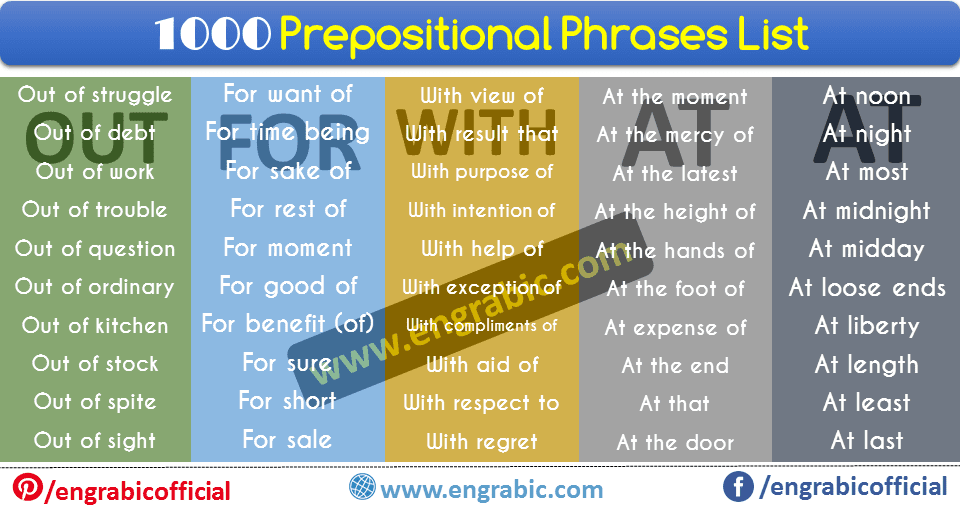
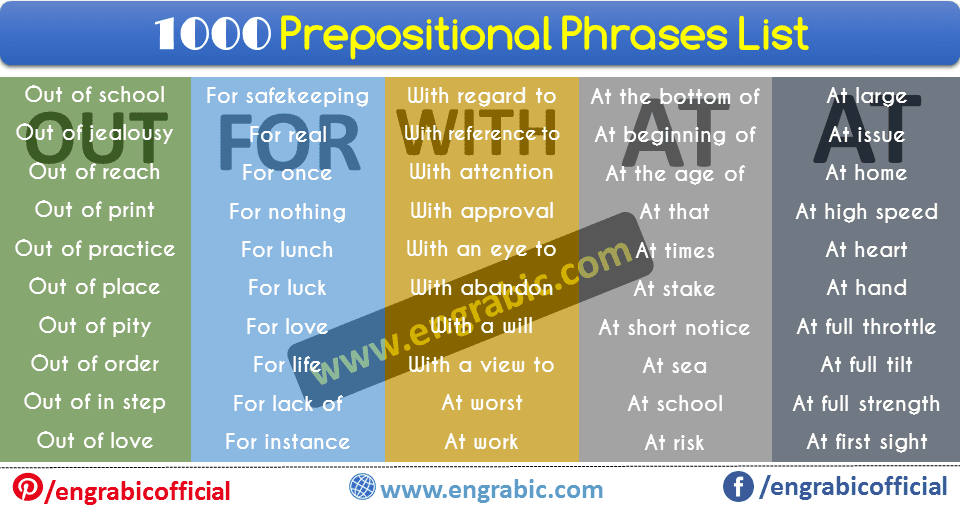

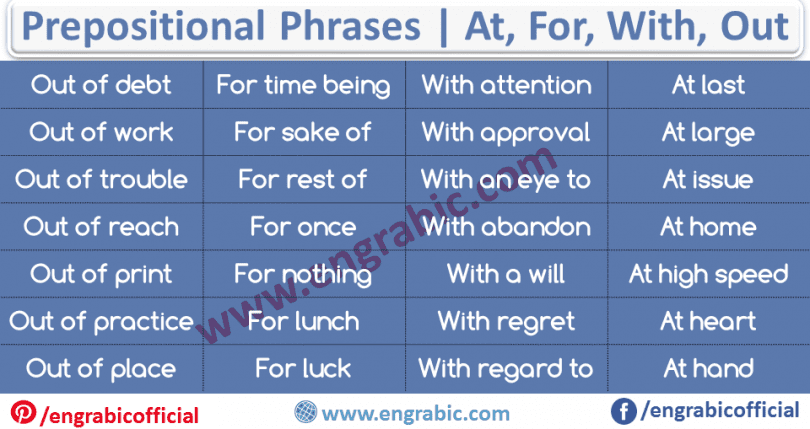
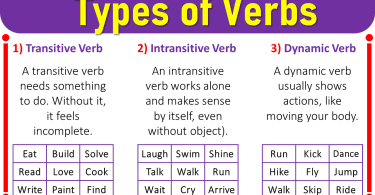
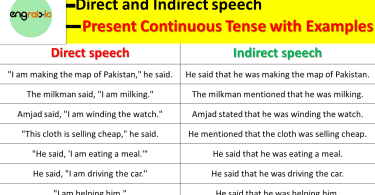
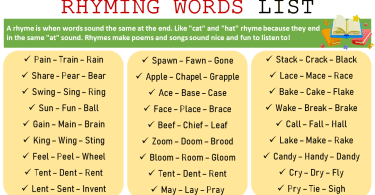
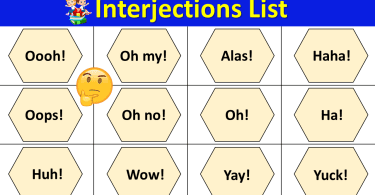
Leave a Comment